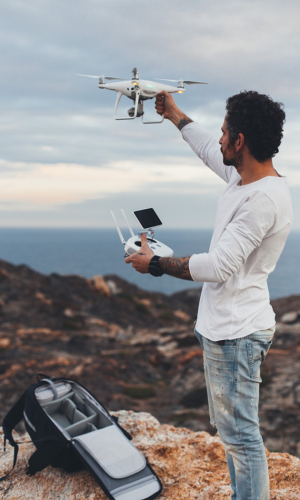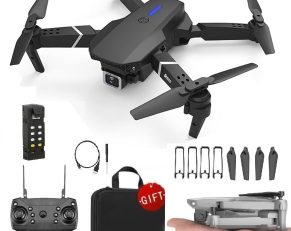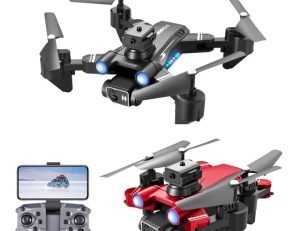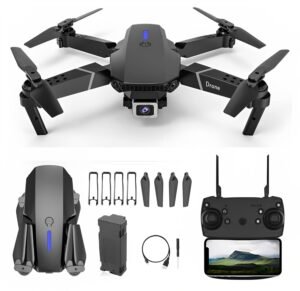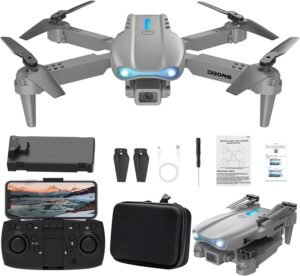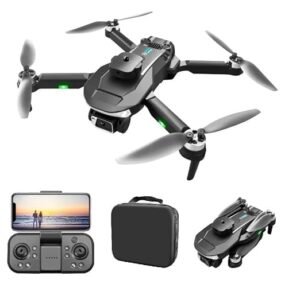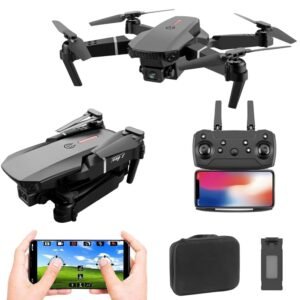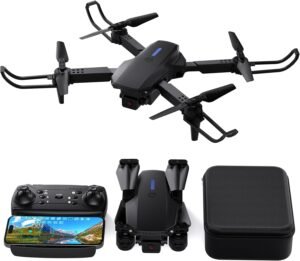Registration and Documentation for a UAV Drone Pilot with the Directorate General of Civil Aviation (DGCA) 2024
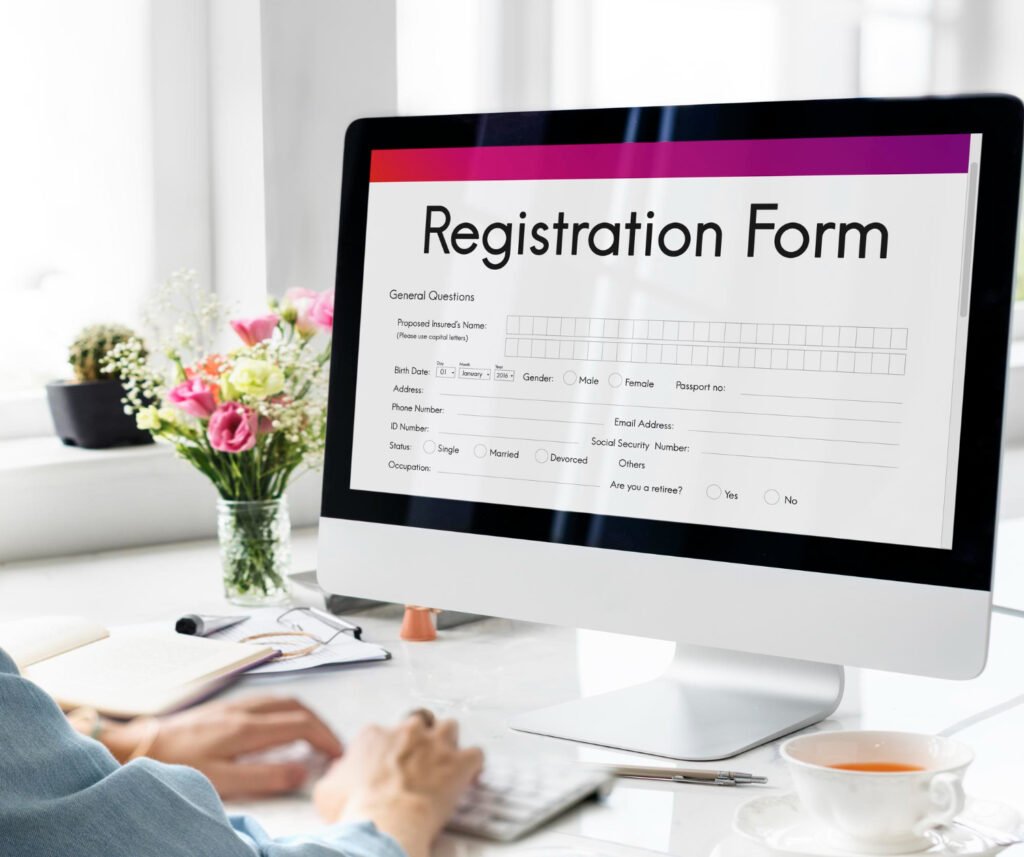
Table of Contents
Brief Overview of Registration as a Drone UAV Pilot in India
Drone UAV piloting has become increasingly popular in recent years, with enthusiasts and professionals alike taking to the skies for various purposes, from aerial photography to industrial inspections. However, with the rise in drone usage comes the need for regulation and oversight to ensure safety and accountability. One of the crucial aspects of drone piloting is registration and documentation with the Directorate General of Civil Aviation (DGCA) in many countries, including India.
What is UAV drone piloting?
UAV Drone piloting involves operating unmanned aerial vehicles (UAVs) remotely using specialized controllers or software. Drones come in various sizes and configurations, from small recreational quadcopters to large commercial drones used for industrial purposes.
Why is registration and documentation necessary?
Registration and documentation are essential for several reasons. Firstly, it allows regulatory authorities to track and monitor drone usage, ensuring compliance with airspace regulations and safety standards. Additionally, registered pilots are often granted access to restricted airspace, enabling them to operate in designated areas safely.
Importance of Registration with DGCA
Legal requirements
In many countries, including India, drone registration with the DGCA is a legal requirement for anyone operating a drone weighing above a certain threshold. Failure to register can result in hefty fines or even criminal charges in severe cases.
Safety regulations
Registration helps enforce safety regulations, such as maintaining a minimum distance from airports and other sensitive locations, to prevent accidents and collisions with manned aircraft.
Step-by-Step Guide to Registration
Preparing necessary documents
Before initiating the registration process, drone pilots need to gather essential documents, including proof of identity, proof of address, and specifications of the drone being registered.
Filling out the application form
The DGCA provides an online portal for drone registration, where pilots can fill out the necessary forms with their personal and drone-related information.
Submission process
Once the application is complete, pilots must submit the required documents and pay any associated fees through the online portal.
Documentation Requirements
Identification documents
Pilots are typically required to provide government-issued identification documents, such as a passport or driver’s license, to verify their identity.
Drone specifications
Detailed specifications of the drone, including its make, model, weight, and dimensions, must be provided during the registration process.
Pilot certification
Some countries may require drone pilots to undergo training and certification to demonstrate their competence in operating UAVs safely.
Understanding DGCA Regulations
Airspace restrictions
The DGCA imposes various restrictions on drone operations, such as prohibiting flights near airports, military installations, and other sensitive areas.
Flight permissions
In certain cases, drone pilots may need to obtain specific permissions from the DGCA to fly in restricted airspace or conduct commercial operations.
Costs Associated with Registration
Registration fees
The DGCA typically charges a nominal fee for drone registration, which may vary depending on the type and purpose of the drone.
Additional expenses
Pilots should also budget for additional expenses, such as training courses, insurance coverage, and equipment upgrades, to ensure compliance with regulations.
Processing Time
Average time for approval
The processing time for drone registration applications can vary depending on the workload of the DGCA and the completeness of the submitted documents.
Expedited processing options
Some countries offer expedited processing options for an additional fee, allowing pilots to receive approval for their registration applications more quickly.
Renewal and Upkeep
Renewal process
Drone registrations are typically valid for a limited period, after which pilots must renew their registration by submitting updated documentation and paying renewal fees.
Updating documentation
Pilots should regularly review and update their documentation to reflect any changes in their personal information or drone specifications.
Consequences of Non-Compliance
Legal ramifications
Operating an unregistered drone or violating airspace regulations can result in severe penalties, including fines, confiscation of equipment, and legal action.
Risks to safety
Non-compliance with safety regulations poses risks not only to the drone pilot but also to other airspace users and the general public, potentially leading to accidents and injuries.
Benefits of Compliance
Access to restricted areas
Registered drone pilots often enjoy privileges such as access to restricted airspace for specialized operations, such as aerial surveys or emergency response missions.
Professional credibility
Compliance with DGCA regulations enhances the professional credibility of drone pilots, instilling confidence in clients and stakeholders regarding their commitment to safety and legality.
Common Mistakes to Avoid
Incomplete documentation
Failing to provide all the required documents or submitting inaccurate information can lead to delays or rejection of the registration application.
Ignoring regulations
Ignoring or circumventing airspace regulations can have serious consequences, both legally and in terms of safety, jeopardizing the reputation and livelihood of drone pilots.
Resources for Assistance
DGCA helpline
The DGCA provides a helpline and online support services to assist drone pilots with the registration process and address any queries or concerns they may have.
Online tutorials and guides
Numerous online resources, including video tutorials and written guides, are available to help drone pilots understand the registration process and navigate regulatory requirements effectively.
Future of Drone Regulations
Anticipated changes
As technology advances and the use of drones becomes more widespread, regulatory frameworks are likely to evolve, with new rules and requirements being introduced to address emerging challenges and concerns.
Staying updated
Drone pilots should stay informed about changes to DGCA regulations and industry standards to ensure continued compliance and adapt their practices accordingly.


